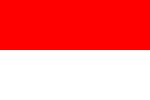Implementation of Subsidized Fertilizer Distribution Policy Through Farmer Card Program
Implementasi Kebijakan Penyaluran Pupuk Bersubsidi Melalui Program Kartu Tani (Studi Kasus Pada Petani Nanas di Desa Siwarak Kecamatan Karangreja Kabupaten Purbalinga Jawa Tengah)
Abstract
This study aims to determine the implementation of subsidized fertilizer distribution policies through the farmer card program to pineapple farmers in Siwarak Village, Karangreja District, Purbalingga Regency, based on the Decree of the Director General of Agricultural Infrastructure and Facilities Number 11/Kpts/SR.310/30/2020 concerning Technical Instructions for the Implementation of Provision and Distribution of Subsidized Fertilizers for Fiscal Year 2020. The method used in this research is descriptive qualitative and data acquisition is done through structured interviews, field observations and documentation review. The results showed that the making of Farmers' Cards in Siwarak Village was in accordance with the regulations, namely proposal, issuance and redemption, but in its application it was still not optimal. Supporting factors for implementation are the presence of competent human resources, adequate budget and community participation. The inhibiting factors are seen from the limited distance and cost in accessing subsidized fertilizers, obstacles in the preparation and validation of the Group Needs Definitive Plan (RDKK) and the weak network in accessing Farmer Cards.
Downloads
References
Agustino, L. (2008). Dasar-Dasar Kebijakan Publik. Bandung: Alfabeta.
Anderson, J. 2012 Public Policy Making, (Second ed.), New York : Holt,. Renehart and Winston, New York. AR
Arikunto, S. (2014). Penlitian Tindakan Kelas. Jakarta: PT. Bumi Aksara
Biroinfrasda Jawa Tengah (2020). Pengertian Kartu Tani. April 2 2021. Retreived from Pengertian Kartu Tani - Pemerintah Provinsi Jawa Tengah (jatengprov.go.id)
Direktorat Jenderal Holtikultura Kementrian Pertanian (2020). PDB Triwulan II 2020, Sektor Pertanian Tumbuh Paling Tinggi. April 2 2021. Retrieved from http://hortikultura.pertanian.go.id/?p=5494
Hartatik, W., Husnain, H., & Widowati, L. R. (2015). Peranan Pupuk Organik dalam Peningkatan Produktivitas Tanah dan Tanaman. Jurnal Sumberdaya Lahan, 9(2). Retrieved from: http://ejurnal.litbang.pertanian.go.id/index.php/jsl/issue/view/JSL%20Vol.9%282%29%20Dec.2015
Mulyadi, D. (2016). Administrasi Publik dan Pelayanan Publik. Bandung: Alfabeta.
Nawawi, H. (2007). Metode penelitian Bidang Sosial. Yogyakarta: UGM Press
Lipsky, M. (1980) Street-Level Bureaucracy: Dilemmas of the Individual in Public Services.; New York: Russell Sage Foundation.
Setiawan, G. (2004). Impelemntasi dalam Birokrasi Pembangunan. Jakarta: Balai Pusatak
Suharto . (2009). Membangun Masyarakat Memberdayakan Masyarakat. Bandung: PT. Refika Aditama.
Suharto, E. (2005), Analisis Kebijakan Publik: Panduan Praktis Mengkaji Masalah dan Kebijakan Sosial. Bandung: Alfabeta.
Suparmoko. (2014). Keuangan Pemerintahan: Pengeluaran dan Pembelanjaan. Penerbit Rineka Cipta.
Tahir, A. (2011). Kebijakan Publik dan Tranparansi Penyelenggaraan Pemerintah Daerah. Jakarta: Pustaka Indonesia Press
Winarno, B. (2012). Kebijakan Publik. Yogyakarta: CAPS.
Winter, S. C. (2003). Implementation Perspective:Status and Reconsideration. Dalam Handbook of Public Administration. London: Sage Publications Ltd
Copyright (c) 2022 Hendra Wijayanto, Oni Lestari

This work is licensed under a Creative Commons Attribution-NonCommercial-ShareAlike 4.0 International License.
- Authors retain copyright and grant the journal right of first publication with the work simultaneously licensed under a Creative Commons Atribusi-Non Commercial-Share Alike (CC BY-NC-SA).
- Authors are able to enter into separate, additional contractual arrangements for the non-exclusive distribution of the journal's published version of the work (e.g., post it to an institutional repository or publish it in a book), with an acknowledgement of its initial publication in this journal.
- Every publication (printed/electronic) are open access for educational purposes, research, and library. Other than the aims mentioned above, the editorial board is not responsible for copyright violation.

















